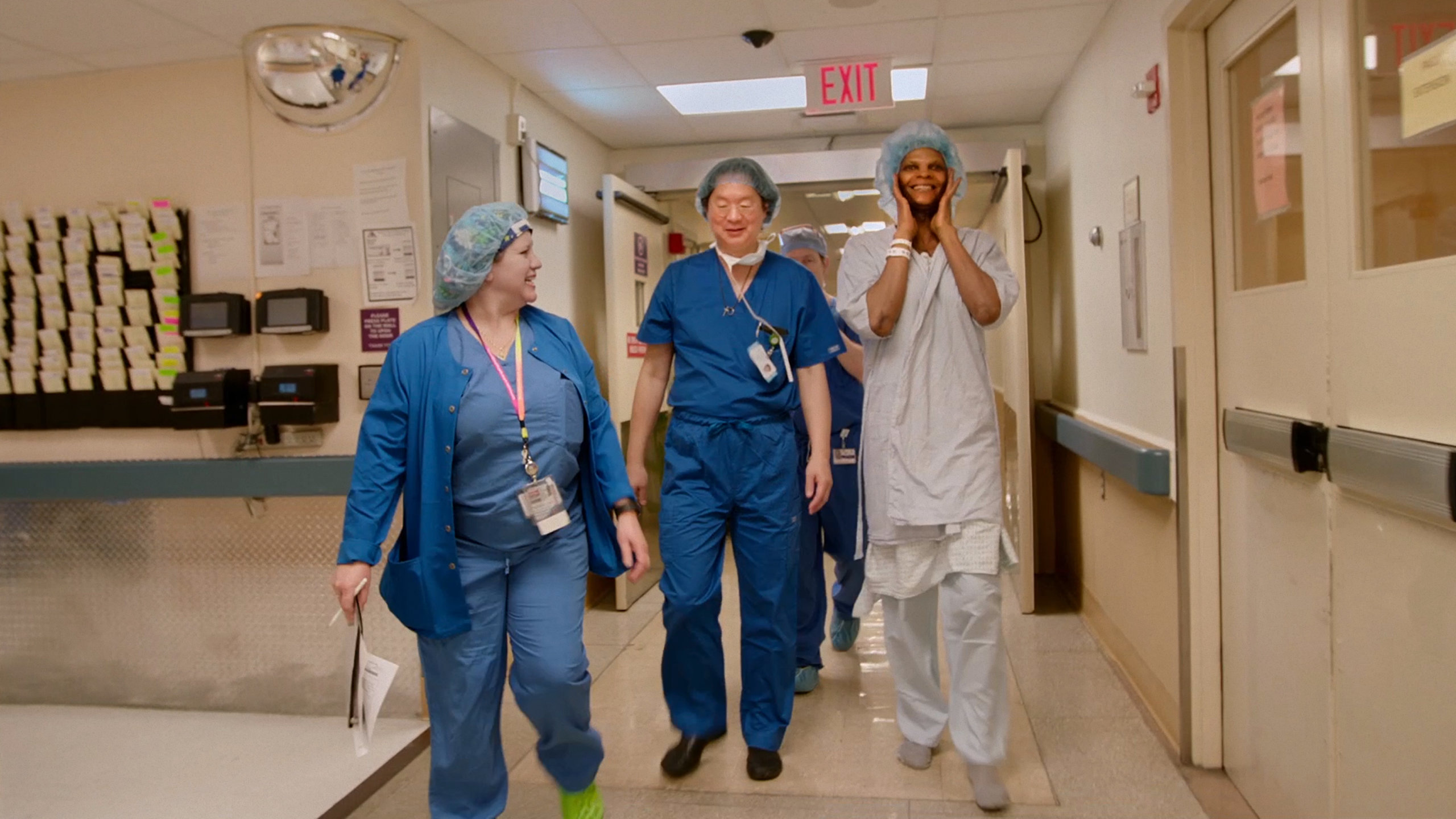The Trans Experience

As a student of music at Juilliard, Dr. Jess Ting never imagined that he’d one day be the Director of Surgery at Mount Sinai’s center for Transgender Medicine and Surgery, yet that’s exactly what he was born to be — which, incidentally, is the title of the documentary about his practice and his patients. “Born to Be,” produced by Dr. Ting’s longtime friend Michelle Koo Hayashi, premiered last week as part the New York Film Festival, and will have its East End premiere at the Hamptons International Film Festival on Friday, October 11, at 12:15 PM at East Hampton’s United Artists theater.
Though initially a physics major at University of Chicago, Dr. Ting left the field of science after just one semester in order to pursue a career in string bass. But even after getting his undergrad and graduate degree, the job market was not as welcoming as he’d hoped. His brother, a surgeon, suggested, “just take some pre-med classes, it can’t hurt.” Before long, he was a plastic surgeon at Mount Sinai Hospital, but transgender surgery was not yet on his radar.
“The only experience I had with the transgender community before becoming a gender surgeon was maybe 15 years ago, when I was just starting out in plastic surgery,” Dr. Ting recalled. “I took care of a patient who I now understand was trans. I remember seeing her and not understanding what she was, or what she represented, and I’m ashamed to admit that I was not comfortable. It just wasn’t part of our training back then.”
In fact, when Mount Sinai launched its gender reassignment program three years ago, there was no one on staff who had ever performed that kind of surgery. As a plastic surgeon, Dr. Ting was the next closest option.
“When Dr. Ting decided to be lead surgeon for the transgender program at Mount Sinai, he would tell me incredible stories about his patients,” Hayashi said. For instance, early in the program, a patient of Dr. Ting’s committed suicide before her surgery took place. Shocked, confused, and curious, Hayashi did some research which lead her discover that transgender people have the highest suicide rate of any demographic. That’s when she had the idea to produce an educational documentary which would feature personal stories from many of Dr. Ting’s patients.
“By filming Dr. Ting’s journey,” she said, “our viewers get an opportunity to experience what many transgender people’s lives are like. Because if society understood and accepted transgender people, then maybe the transgender suicide rate would decrease.”
The fact that Hayashi had zero experience in film production was of no consequence. “The stories that Dr. Ting told me inspired me to become a filmmaker,” Hiyashi said.
“Michelle went out and bought a camera, hired a director, raised a little bit of seed money, came to my office, and just started filming,” said Dr. Ting. “Just her, the director, and a camera man.”
Already, the film is having a profound impact on its viewers.
“People, parents of trans children, have come up to me and said, ‘Your film will save lives.’ And maybe it will. Because film is insidious, right? It can change minds and open attitudes. It can persuade people of things without them even realizing it. That’s the power of film,” Dr. Ting said.
“Hopefully it will be an educational tool for schools and hospitals,” Hiyashi added of the documentary. “It’s so important that the message of this film spread to people who don’t have enough information on healthcare, and people who aren’t accepted by their family members, to know that they’re not alone. There is hope and help out there.”
And that hope and help is expanding. Mount Sinai recently implemented a fellowship to train new surgeons, including education around gender fluidity.
“Gender fluidity is something which has really changed the field,” Dr. Ting said. “Gender surgeons are now learning to think outside of the binary definitions of gender. It truly is a spectrum, and we’ve had to rethink our whole approach to taking care of patients to take that into account. That’s still a work in progress, and it will continue to be.”
Dr. Ting’s work includes helping to change curriculums in medical schools to incorporate better understanding of gender and gender fluidity. And where at the start of the program, Dr. Ting had a difficult time persuading other physicians to join him in this field, young surgeons are now not only applying to the fellowship, but are becoming passionately and actively involved in any way they can. Even one of Dr. Ting’s role models, the distinguished surgeon Marcy Bowers, who helped start the gender program, personally taught Dr. Ting how to perform a vaginoplasty, and is herself transgender, has opted to join the faculty.
In addition to the skilled surgical team, a team of psychologists, psychiatrists, chaplains, and social workers ensure that the center take care of not just the body, but the mind and spirit of their patients.
“Not every trans person wants or needs surgery,” Dr. Ting explained. “We take care of the whole person.”
Dr. Ting will continue to champion the rights of transgender individuals during a Q & A, where audience members will have an opportunity to ask about his past experiences, his new improved approaches to surgery, and his “Born to Be” journey, directly following the HIFF screening.



